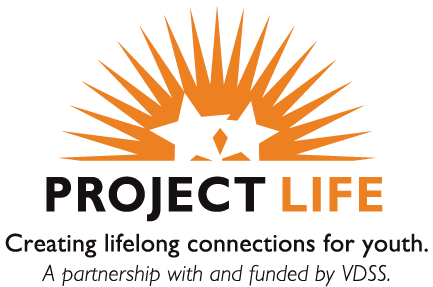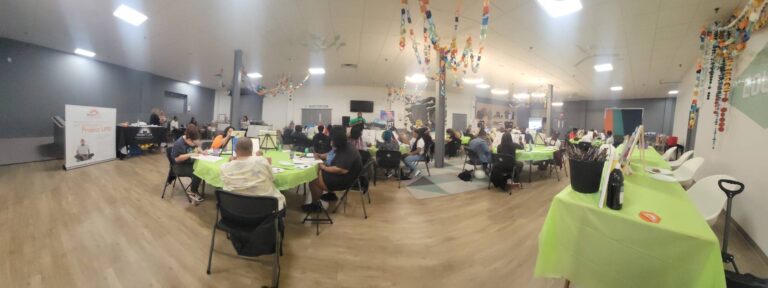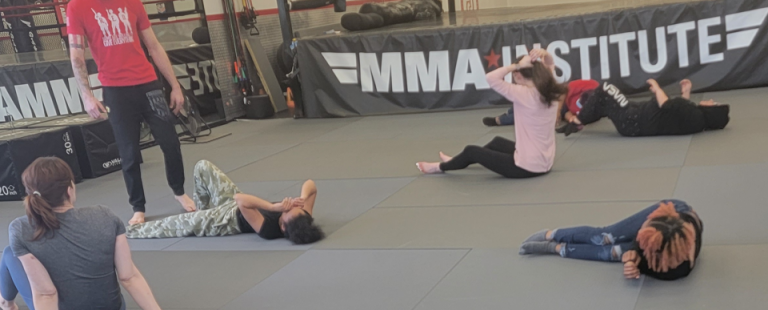New Year’s Resolution
A Letter from Olivia, and the rest of the Project LIFE team
Olivia Snoke, Project LIFE’s Independent Living Consultant in the Central region, shares her resolution for the new year.
Statistics say DSS is failing the youth in foster care. Chafee requires us to teach these youth how to be happy, healthy adults. The CLSA and TLP compliance is below 50%. My experience tells me that is it extremely likely that these youth are not getting monthly lessons about money management, career advancement, preventing homelessness, having safe sex & healthy relationships, and other areas that will help them be successful in the future. We all know how hard the pandemic has been on the social work field. Teaching youth these life skills has been pushed to the back burner in order to put out the fires. It has been nearly 3 years since COVID was discovered. These youth continue to get older and have not received the knowledge and skills to support themselves after they leave care. If IL does not fit on your plate, please do not let it fall in a crack; throw it to Project LIFE to carry. We professionals are the ones tasked to raise this population. We are the village. If we do not make an effort to prepare them for this world, they will suffer alone out in it.
New Year’s Resolutions for work:
>Increase IL compliance
>Focus more on their futures than their pastsSend me your resolutions, and I can help you meet them. I am willing to provide my knowledge and skills to increase the youth’s chances of success.
Let’s do it!
Since starting my work in VA, I have met so many passionate individuals doing everything in their power to help these youth become happy, healthy adults. However, they are often over worked, underappreciated, and struggle to make an impact in a big way. In 2023, let’s make a resolution to pull IL skills learning to the forefront. I want to see us all band together to see that every youth in foster care over the age 14 gets the skills and knowledge to raise the chances that they will have the future they wish for. I would love to see these youth develop the power to make life what they want it to be and to make all their goals and dreams come true. That will take a village. That will take a team for each youth. This will force us to stop looking at their past or present, but look to their future and prepare them for what lies ahead.
If I may get on my high horse, I come from South Dakota and worked under the Chafee grant. I have sat back and learn about VA’s IL program over the last year and found it wanting. The value each agency places on IL services varies. I have heard, “They are going to be adopted, so they don’t need IL,” and “They are in a Kinship Placement, so we don’t do IL with them.” I challenge all of these thoughts with, “Are they going to be adults? Then they need independent living skills.” IL is not something only for the youth who are in Fostering Futures, yet a significant number of youth under 18 are not getting the information. I have heard individuals say, “IL skills are cleaning your room, hygiene, and acting appropriately.” No! Those are skills you learn from Cocomelon. These youth need to know credit (because they won’t have a co-signer), employment (because there will be no one to give them money), and how to get housing (because they won’t have a couch to sleep on).
>64% of youth who completed the NYTD Survey had a High School Diploma by the age of 19.
https://www.acf.hhs.gov/cb/data-research/data-and-statistics-nytd
>Over 1/4th of youth report having experienced homelessness in the last 2 years.
>Only 31% of youth are working full-time at the age of 21.
Project LIFE is tasked with reaching and teaching 700 of the 2,000+ youth over 14 years old in foster care, yet we struggle to interact with a tenth of them. VDSS contracted Project LIFE to ensure that Virginia’s youth in foster care are becoming empowered, skillful adults. However, many agencies who are struggling to give youth IL workshops do not take advantage of the free services that Project LIFE provides. I have spent many hours creating events that would meet the VA Chafee requirements and too many of them have been cancelled due to no participants.
Thank you for reading this far! I know many of you are focusing on cleaning out your inboxes after the holiday and watching your to-do list grow.
Thank you for reading this far! I know many of you are focusing on cleaning out your inboxes after the holiday and watching your to-do list grow.
>Please call me to discuss and assist with a case.
>Invite me to a transition meeting.
>Call me to find out how to go about rejuvenating independent living.
>Reach out to get resources to fill a youth’s need.I pride myself on being an expert in this population; let me help you fill your professional life with joyful stories that developed from tragedy.
To make this resolution a priority, I have provided some additional data. If it is helpful, here are the federal and state laws regarding IL are below.
Chafee Federal Requirements
#1 Case Plans and Permanency Plan (aka Transition Plan) – Youth 14+ must have a written case plan of the programs and services that will help them prepare for the transition to adulthood. These youth must be consulted about the development of said plan and are allowed to choose 2 members of the planning team.
#2 Alternative Planned Permanent Living Arrangement (APPLA) – No youth under 16 may be given a permanency plan of APPLA
#3 Essential Documents – The state must provide youth over 14 a credit report each year and assist them with understanding the results. When youth leaves care they must be supplied with education records, health records, medical insurance information, birth certificates, social security card and identification card.
#4 Transition Plan – 90 days before a youth age out of foster care, the state must develop a transition plan that is directed by the youth. This plan must include Housing, Health Insurance, Education, Workforce Supports, Employment services and other local supports/mentors. It must also address the importance of designating another individual to make health care decisions on the behalf of the youth.
Virginia Chafee Law
22VAC40-201-100 Providing ILS service for youth 14 and up.
- IL Services shall be provided to all youth in foster care 14 to 21 and be offered to former foster youth under 23 years old.
- LDSS shall conduct CLSA and Transition Living Plans within 30 days of the youth birthday (or within entering foster care when over 14).
- A youth who had been in foster care six months or more shall receive education records, health records, medical insurance information, birth certificates, social security care and identification card.
- LDSS shall run annual credit checks for youth 14 to 18, and assist youth 18 to 21 with obtaining their credit report.
- LDSS shall make sure a youth that ages out of foster care is enrolled in Medicaid (eligible until the age of 26)
- LDSS shall give the youth aging out of care the opportunity to complete a survey. This is the EXIT SURVEY
The Foster Care Independence Act of 1999
#1 Added Education and Training Voucher program
#2 Expanded Chafee to youth who leave care after 16 years of age through adoption or kinship guardianship
#3 Requirements for youth to be informed of designating other to make medication decisions (advance directive)
#4 NYTD collection requirements to get full Chafee Funding
#5 Add a purpose of spending funds to support independent living skills learning
Virginia Law – IL Services Chafee funds can be used for
- Transportation
- Educational: completing high school, general education degree and higher education, including assistance for tuition, admission fees, supplies, equipment, tutoring, etc.
- Vocational Training: Job training/readiness, job search and placement and other related services to prepare youth to become self-supporting, or that increases performance/functional competency.
- Development of permanent connections with adults.
- Daily Living Skills/Aide: Assistance and training on budgeting, housing, money management, career planning, procurement and/or provision of any services or items which facilitate establishing youth in an independent living arrangement, e.g., household goods, supplies, services, insurance, utility turn-on, etc. Daily living skills may be provided by local social services staff, others involved in the youth’s care or through negotiation or contract with a resource person or entity.
- Other Services and Assistance: Training, meetings, conferences, retreats, workshops, relating to building competencies that strengthen individual skills and foster successful independent living.
- Outreach Services: To reach and engage eligible youth in linking to available IL services



